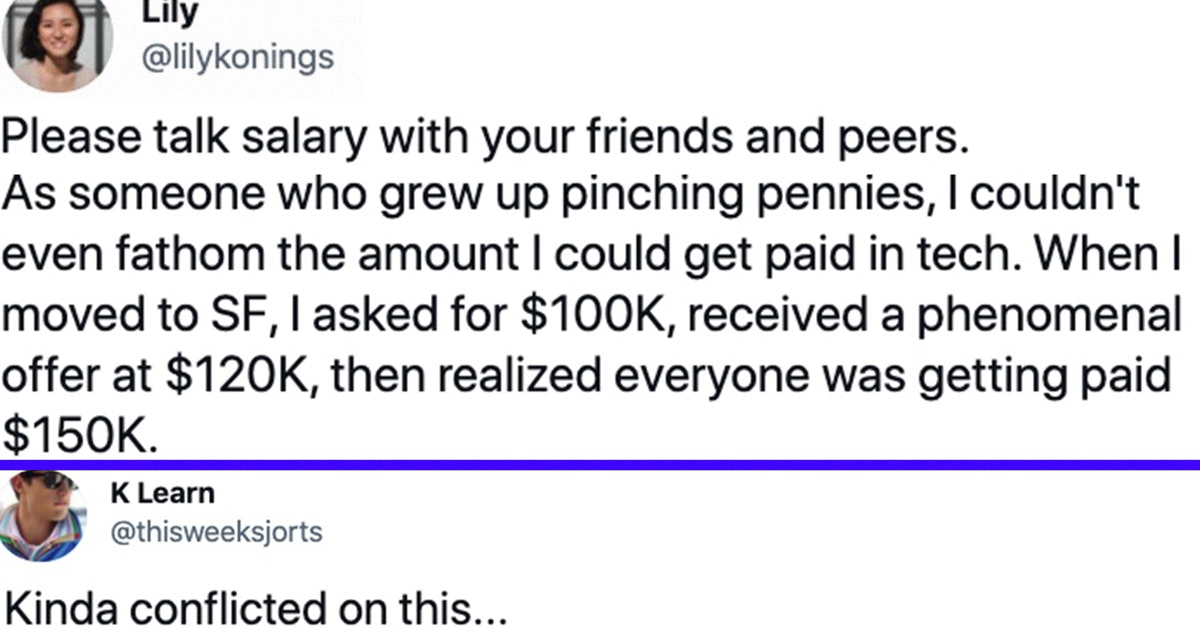Viral Tweet About Sharing Salaries With Coworkers Sparks Huge Debate
Talking money has always been a touchy subject in the United States. Most of us were raised with the idea that to discuss it in any regard is rude and should be avoided at all costs, whether you’re someone who has money or not. But according to critics of that approach, keeping quiet about money makes it easier for the rich to get away with underpaying people who don’t know their value.
Lily Konings, a product designer in San Francisco, made the case for talking openly about salaries earlier this week, predictably sparking a heated debate.
“As someone who grew up pinching pennies, I couldn’t even fathom the amount I could get paid in tech,” she wrote. “When I moved to SF, I asked for $100K, received a phenomenal offer at $120K, then realized everyone was getting paid $150K.”
Some people were quick to dismiss Konings’ plight with the predictable excuses: Not everyone deserves the same pay. $120K is already a lot of money. Why would a company pay you more if you’re happy with less? Talking salary only breeds resentment.
But most of those excuses miss the point Konings and others who have made similar suggestions in the past want to make.
“The moral of the story isn’t to be greedy,” she added, acknowledging that $120,000 a year is a lot for most people. “The point is equal pay for equal work. It was soul-crushing to know my peers (esp men) of the same title and years [were] making significantly more than me simply because I didn’t know better.”
Countless studies have shown that men are generally paid more than their female counterparts, and that discrepancy is compounded when race is factored into the equation — predictably, white people tend to make higher salaries for the exact same work.
While it may be true that if Koning had never found out her similarly skilled and experienced colleagues were making a full $30,000 more than her per year, she wouldn’t have had anything to be bothered by, it doesn’t address the root issue of the inequality that has been allowed to grow over decades of unjust wage discrepancies in a country where all people hypothetically have the same value and opportunities.
Konings’ tweet resulted in a number of other people coming forward to share their own frustrations with discovering they made less than their peers and how that could have been avoided with open conversations.
At the end of the day, there’s a reason so many companies have historically either frowned upon or expressly forbid employees from discussing compensation among themselves, and it’s pretty clearly not to benefit the employees.

